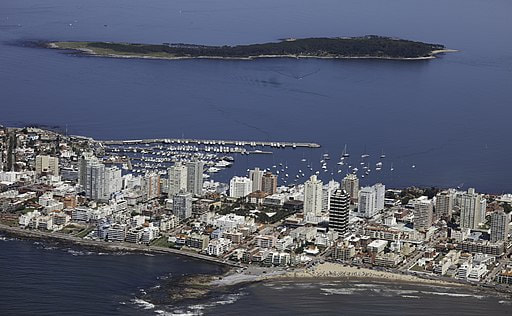|
Over the past month, I’ve received numerous requests from people who are interested in retiring abroad. A Baby Boomer couple thinks they need to relocate in order to afford healthcare and end-of-life care. A Gen X-er wonders if she could invest in the next “hot vacation destination,” buy a 3-bedroom home and rent it on AirBNB. A grandmother is considering a cheap villa (just $50,000!) in Costa Rica as her winter home. So, is retiring abroad a good idea? As a world traveler, this is a question that I ask frequently of ex-pats. Perhaps the person who is the most excited about her homes abroad is the one who purchased three small flats in cities where she travels for work – one in Paris, one in New York City and another (for fun) in the French Alps. This woman has enough income and budgeted within her means, so she is not stuck living in any one of them. She purchased places she could easily afford, even without rental income. They are small flats, located in great walking neighborhoods, so she can actually host guests, which helps her businesses. That experience is very different from the expats I encountered in Costa Rica a few years back. Over dinner, an unhappy couple told me that with the inflation there, daily life had become as expensive as living in the States and made them feel poor and stuck. I recently returned from a month in India. Expats there can’t believe how far their money goes! However, they also have to endure the pollution, the perilous road conditions the poverty and the mosquitoes. Everyone I know who had a place in the South of France has sold it. The woman who wanted to buy a villa in Puerto Rico last year is very happy she drug her feet and never jumped on the opportunity.
Each one of these real life experiences highlights a different risk factor that you must consider. Rule #1 is to spend at least a month where you are thinking about moving. After 21-days, you’ll start feeling more like a local and less like a tourist. Ask questions of the locals and the ex-pats. Mingle with people other than the folks trying to sell you into the opportunity. What do the expats and the locals like about living there? What are the challenges? Are ex-pats welcomed or shunned by the locals? These are your neighbors. If you don’t fit into the ethos or the community, or ex-pats are unwelcome, then you have your answer. Don’t force yourself onto a community that is unwilling to embrace you. Below is a checklist that will help you to identify the red flags, the green lights, the caution signs and more. Because buying real estate is an investment, you also want to incorporate my 3-Ingredient Recipe for Cooking Up Profits. Buying Abroad Ex-Pat Check List
And here is a little more information on each point. 1. The 3-Ingredient Recipe for Cooking Up Profits ®.The 3-ingredient Recipe for Cooking Up Profits helps you to organize the data and information that you need to assemble in order to properly evaluate the opportunity as an investment. Here are the ingredients. 1. Start with what you know and love. 2. Pick the leader. 3. Buy low; sell high. Take each ingredient in order. One of the best tools to learn more is going to be your “kick the dirt” analysis – your month in the country and town you want to buy in, mingling with locals and ex-pats. The Index of Economic Freedom can also be very helpful to understand how well protected property rights and money freedom are. For additional information on the 3-Ingredient Recipe for Cooking Up Profits, read the chapter of the same name in my book Put Your Money Where Your Heart Is (aka You vs. Wall Street in paperback). 2. Know the Laws.Are property rights protected? Is the judicial system corrupt or backlogged, or does it run fairly and smoothly? 3. Know Your Neighbors.Are you living in an ex-pat community or with the locals? How friendly, happy and proactive are your neighbors? How expensive is the Homeowners Association dues and how restrictive are the rules? Is someone going to give you grief over the color you paint your home, or how you entertain, or if you rent your place on AirBNB? 4. Know Your History.Why is the homeowner so desperate to sell to you at such a low price? Of course, she will say that it’s nothing, and that you’re getting a great deal. You have to get your information from someone other than the broker/salesman and the seller. If you see, feel or hear anything that seems suspect, dig deeper. There are Eastern European countries that were a part of Russia a few years ago. Syria was the gem of the Middle East before it became a warzone. 5. Know The Local Culture.There are Red States and Blue States in the U.S. There is South Central and Beverly Hills in Los Angeles. Blood and tradition run thick. Know what you are stepping into, and what kind of shoes you’re going to need to navigate the streets and mingle with the locals. 6. Consider the Environment and Climate Change.India is one of the most polluted countries in the world. Air quality can be unhealthful, and clean water isn’t always easy to come by. I The first climate refugees in the U.S. are being evacuated from an island in Louisiana. Hurricanes are larger, with more frequency – affecting Japan in the Pacific, the islands in the Caribbean and the entire Eastern seaboard of the U.S., among other destinations. 7. Are The Locals “Your People?”Ideally, home is your sanctuary. Are you moving into a community that feels like your soul can sing there? Or are you motivated only by fear, trying to find something affordable, where you can die? Health care and housing costs are not the only consideration of retiring abroad. You also want to consider:
If you go through the analysis, and you still feel great about the opportunity, then it is more likely to be the right answer. If you jump in without looking, you might find yourself in a sand trap money pit. We can get into a bit of a swoon while on a vacation. Real life can have a rainbow over the horizon, but only when you plan well. If you are interested in learning more about successful investing, in smarter health insurance and health choices and in saving thousands annually in your budget when you stop making the billionaires rich at your expense, join me at my next Investor Educational Retreat. Call 310-430-2397 or email [email protected] to learn more.
Ann Convery
18/7/2018 02:13:17 pm
Natalie, 18/7/2018 03:20:13 pm
My pleasure, Ann. Keep the questions coming. They help all of us. Comments are closed.
|
AuthorNatalie Pace is the co-creator of the Earth Gratitude Project and the author of The Power of 8 Billion: It's Up to Us, The ABCs of Money, The ABCs of Money for College, The Gratitude Game and Put Your Money Where Your Heart Is. She is a repeat guest & speaker on national news shows and stages. She has been ranked the No. 1 stock picker, above over 830 A-list pundits, by an independent tracking agency, and has been saving homes and nest eggs since 1999. Archives
July 2024
Categories |










 RSS Feed
RSS Feed